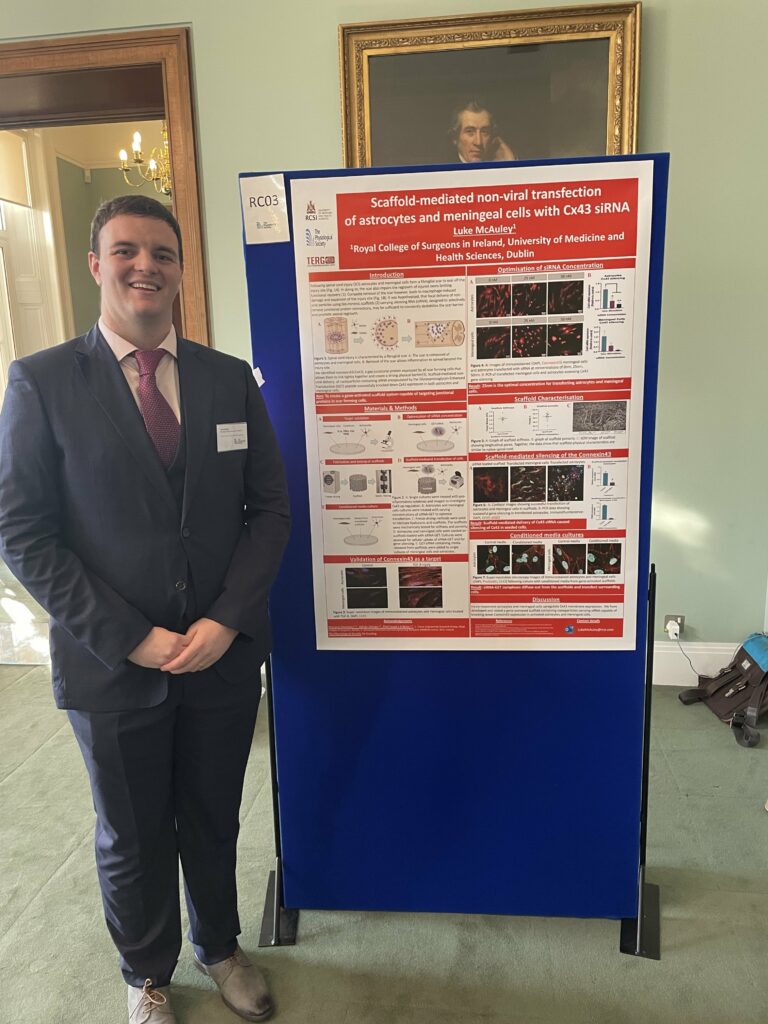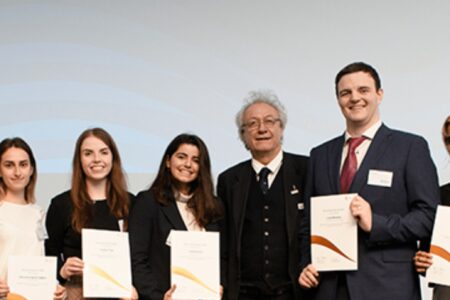Luke McAuley, Royal College of Surgeons in Ireland, was announced the Rob Clarke Award runner up at the 2022 Member Forum. Following the presentation we interviewed Luke to find out more about his experience, and the inspiration behind his research project on spinal cord injury.

What are you studying?
I am in the fourth year of my medical degree at the Royal College of Surgeons in Ireland, Dublin. I enjoy the variety and learning experiences of the clinical rotations we must complete this year, covering the specialties of psychiatry; obstetrics and gynaecology; clinical medicine and surgery; and paediatrics and general practice.
What inspired your research project?
My project looked at ways to promote the regrowth of cells to improve healing and recovery following a spinal cord injury. We devised a scaffold-based delivery system capable of administering therapeutics directly to the injury site which reduced scaring and promoted regrowth. I am a medical student and an avid rugby player, a sport where head, neck and spinal injuries are common. So, I was keen to research injury prevention and possible therapeutics leading to better outcomes following a spinal injury. I was fortunate to get the opportunity to partake in an eight-week summer project within the Tissue Engineering Research Group (TERG) Spinal Cord Injury team.
What did you find were the challenges and highlights of participating in the Rob Clarke Award?
TERG is led by Professor Fergal O’Brien and partly funded by the Irish Rugby Football Union charitable trust. Prior to participating in the Rob Clarke Award, I had had minimal exposure to lab-based work. It was definitely a challenge mastering the skills required for cell culture and the preparing of samples for polymerase chain reaction and imaging. Although I initially struggled preparing the samples, under the excellent tutelage of Martyna Stasiewicz and Dr Adrian Dervan, I quickly developed these skills, which allowed me to work independently and efficiently.
The poster presentation was an amazing experience and excellent learning opportunity for me. I had never presented to a panel of judges before and so was a little nervous to start with. However, as the day went on I grew in confidence, helped by the enthusiasm shown by both the judges and The Physiological Society members that came to view my poster and ask questions. Their questions made me think about alternative approaches to my work and consider other processes that would improve the efficiency and quality of the results.
Has your project influenced your career interests?
I plan to specialise in orthopaedics, and I am extremely excited to do my clinical rotations this summer at The National Orthopaedic Hospital in Dublin and in Chicago. The Rob Clarke Award project has highlighted to me the need for further research into spinal cord injury repair therapeutics, and the need for clinicians who are willing to bring these new revolutionising technologies to trial in their patients.
Want to hear more about the Rob Clarke Award Finalists, read our interviews with 2022 award winner Elena-Georgiana Capburn and 2022 Runner Up Peter Panizza.

